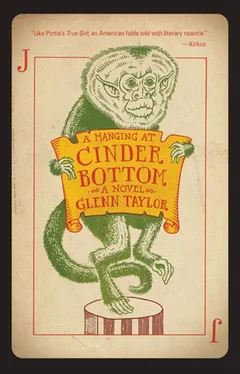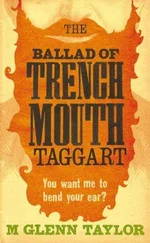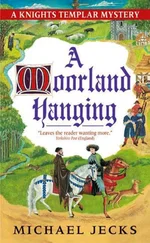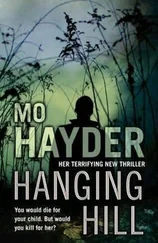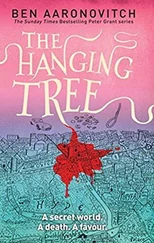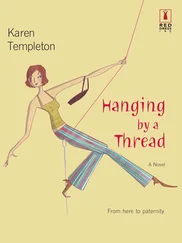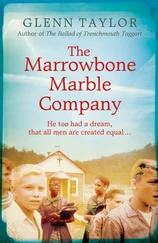Sam stood over her. It occurred to him then that he was some sort of devil barkeep, that the drinks he poured were bound to curse his brothers. “He only had three or four swallows,” he said.
“Looks tired.” Still, she thought, he was more handsome than when he’d left.
When he came to and saw her looking down at him, he said, “Well I’ll be a tallow-faced prairie dog.”
Goldie laughed to keep the crying at bay.
Sam looked at the two of them together on the floor. He said he’d go down to the icebox and fetch a frozen cut of meat for the swelling.
Abe could scarcely believe she was there above him. She was more beautiful than when he’d left. He sat up and asked her, “Can I hug you?”
She said he could, and it was quiet then, and they did not come apart until Sam was back.
They stood and Abe took the stringy cut of meat and regarded it. “Last I heard,” he said, “shoe leather doesn’t take swelling down.”
Sam took it back. “I’ll put some salt on there,” he said, “lay it on a hot coal shovel over the embers — it’s good as any you’ll eat.”
“It’s a real Delmonico is it?” Abe said.
Goldie asked if he’d been up to the house. When he indicated that’s where he was headed, she said she’d come along.
“I’ve said my goodbye already,” Sam told them. He said he’d be there at five for dinner.
They’d need to take the long route to avoid Railroad Avenue. Abe did not want it known he was home.
In the woods, they moved fast and single file, Goldie in the lead. He watched her as he climbed. It didn’t matter where he looked — the heel of her boot or the nape of her neck or the place beneath her waist — she stirred in him a thing he’d not felt in seven years. He found that his trousers tented unless he looked at the horse path, but he could not look away from her for long, and this pattern of pecker protraction and contraction continued all the way up the hill, and despite his repeated crotchal adjustments, it was the most discomforting hike of his life. He stopped at a beech tree to adjust and took note of a fish someone had carved in the bark.
Goldie hollered at him over her shoulder. “Climb!”
The sound of it made him smile.
At the grass bald below the second house, Abe had gotten his trousers under control, and he’d begun to consider all that had to be considered. He asked if they could stop for a minute. “I only heard about your father’s passing yesterday,” he said. “I’m so sorry.”
When he started to go on, she stopped him. “Why don’t we talk this evening,” she said.
In the front yard of Hood House, from just behind the fading rate sign, Sallie had watched them come on the horse path, her eye pressed against the blued steel scope of a rifle. She kept watch in this manner three times a day, training on whatever moved in the woods. She had done so ever since Al was shot in the kneecap, ever since Trent had proven himself utterly mad and unpredictable as the wind.
On this day, like most, it was Goldie whom she sighted. But behind her, striding in a manner that Sallie recalled from even his first steps, was her Abraham. She watched him stop at the grass bald and talk to Goldie. She watched him lean against a skinny poplar tree and clean his boot tread with a bark chip. She closed her eyes, took a deep breath, and looked through the long scope once more to be sure. Then she set the rifle against the sign and walked into the yard to wait for him.
She held her hairpins in her teeth while she tightened the gray bun up top. She wiped at her leaking eyes and sniffed. With her shoe tip, she loosed a small rock from the dirt. She bent and picked it up, and thought on heaving it at Abe when he came into distance.
Goldie told Abe she’d meet him inside and went around to the back.
He surveyed the house as he came, the way it was stuck into the hill as if dropped there from above. One of the corner boards was loose, and there was a bird’s nest in a second-story sill. Through the glass up there, Abe made out the shape of a seated man.
When he got close enough, he stopped and raised a hand to his mother. She kept hers on her hips for a moment, then waved him to come on. He did, stopping only when he was close enough to touch her.
She worked her lips together and stared at him with eyes whose color knew no name. “Well,” she said. “I don’t know whether to hit you or hold you to me.”
“I’m only thankful you didn’t shoot me with that long gun there.” He nodded at the sign.
She smiled despite herself. “Your brother mounted a telescope on that rifle of his. If I’d wanted to, I might have shot you clear through before you hit the property line.”
“You’d have been justified.”
“Let me feel you,” she said, and they hugged one another close and hard and Sallie let out a long, throated breath with her eyes shut tight, and Abe knew how bad he’d hurt her, and she knew, by the way he held on to her, that he was sorry to have done it. When they let go, she said she reckoned he was hungry. He nodded that he was, for he couldn’t speak.
Her skirt was the same limp gray rag she’d worn all her life, and he watched her pull it up between thumb and finger as she ascended the porch stairs, her movements true as her attire. He followed her inside. The smell was one he recollected — salt pork and beans, and behind that, ammonia. Sallie went to the kitchen and Abe stood alone in the hallway regarding the old sideboard stacked in paper and junk and a pitcher of dead flowers. A greasy-coated calico cat lay on its side underneath, licking a front paw, its eye on Abe. He bent and held out a finger. The cat stood, stretched, and went for a spindle leg on the sideboard. It worked the wood with its claws, tearing off splinters. All six legs bore the marks. “You like whittlin?” Abe asked the cat, and then every little muscle in its body electrified before it tore off down the hall, for it had seen Sallie emerge from the kitchen with a glass of water in hand.
“I soaked her on Tuesday,” Sallie said. She walked back to the kitchen. It did not seem real that her middle boy had appeared, that she could speak to him on everyday things, that she could reach out and touch him.
Abe was about to inquire on the whereabouts of his daddy when there was a smacking sound from above, and little Ben appeared at the stairhead. He wore only a loose-pinned diaper. Abe took note of his complexion and his furrowed brow. The boy had a look about him of a shrunken old-timer. “Hello little man,” he called.
Ben was not yet fully stable on his feet. He glared at Abe. He grunted at him. And then he took another step. “Whoa now,” Abe said, and he positioned a foot on the riser and readied himself to charge up the flight if he had to.
But he didn’t. Agnes ran forth from the upstairs hall and got the baby under the arms. She swung him up and held him tight against her, asked him just what he thought he was doing.
Ben stuck his finger in her eye.
She squinted tight to ease the blow. “Eye,” she told him. “Say eye .”
“Hello,” Abe called again.
“Hello.” She looked at him sideways. “Who are you?”
He thought on how to answer. “I’m Abe,” he said.
“Uncle Abe?” she asked.
It knocked him back a little, hearing her call him by such a name. “That’s right,” he said.
Baby Ben worked to get loose of her and she ignored his struggling, accustomed to the wrangle. She raised her voice over his grunts. “I can read books meant for old people,” she said.
“Is that right?”
Sallie hollered from the kitchen. “Aggie! You take my biscuit roller?”
“Yes ma’am,” the girl hollered back. She’d been killing ants with it on the back stoop all morning, a dozen or more at a roll.
Читать дальше
Конец ознакомительного отрывка
Купить книгу
